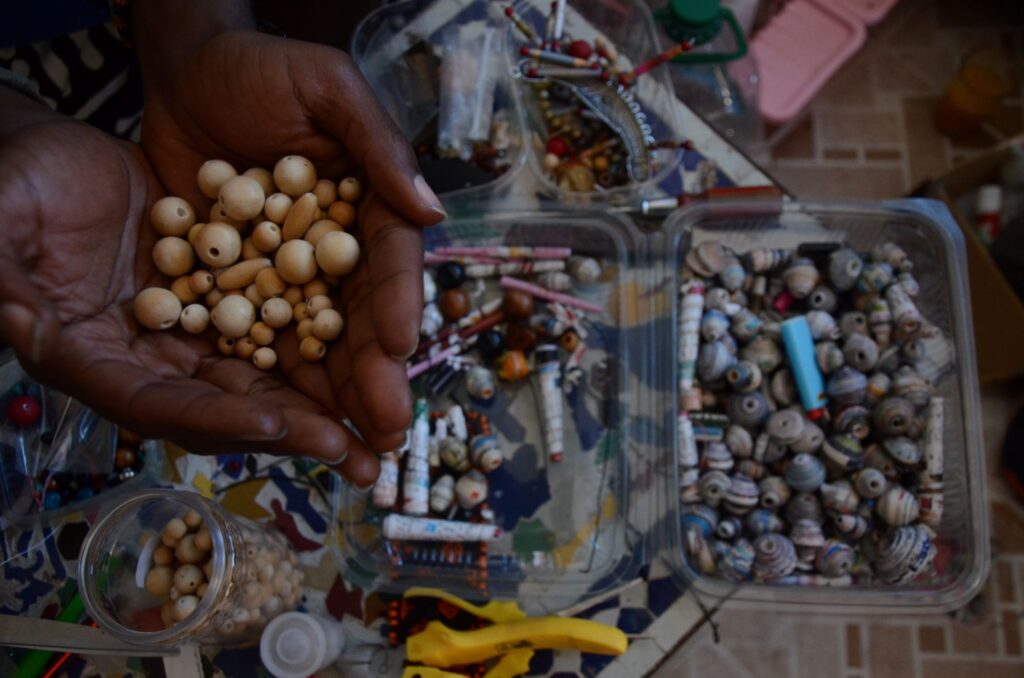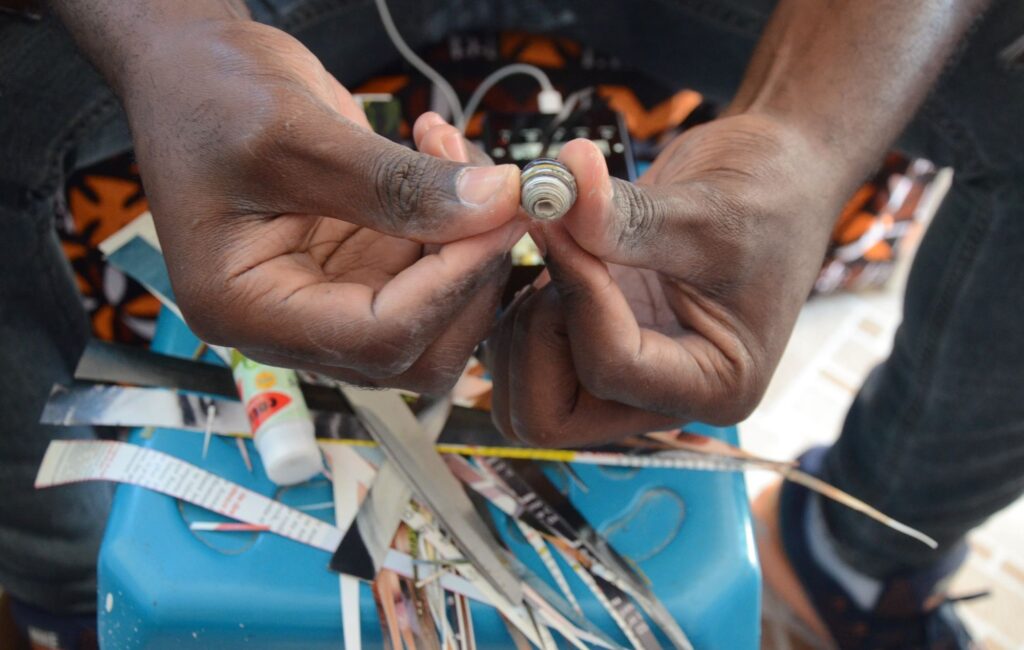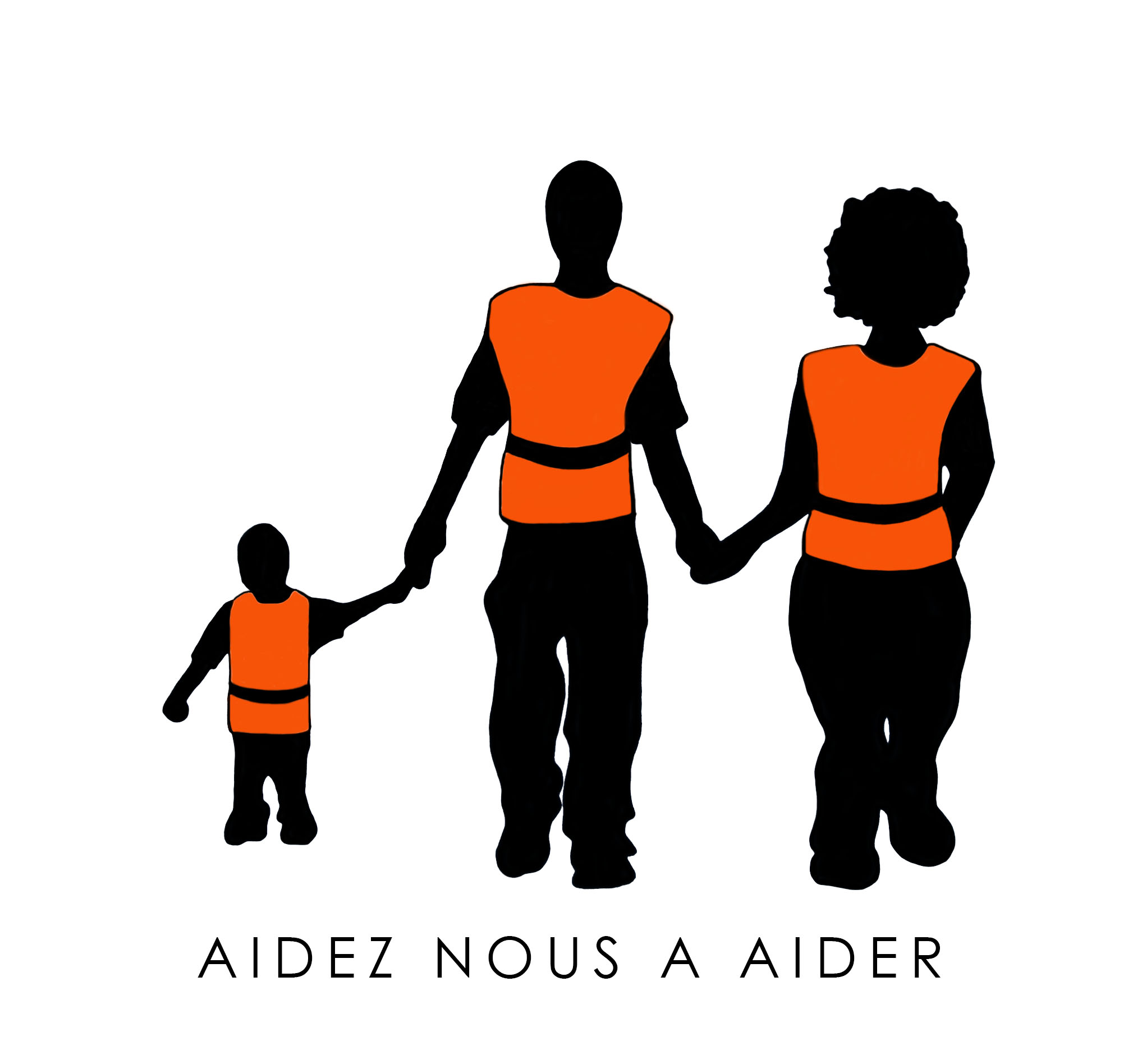
Making paper beads from recycled materials is a great job opportunity for migrants in Morocco, as it is an environmentally friendly and sustainable way to create beautiful products that can be sold in local markets or online. By creating paper beads from recycled materials, migrants in Morocco can develop a sustainable and profitable business that supports both their families and the environment. Additionally, this project can be easily scaled up to involve more people and produce larger quantities of beads. It is a great way to promote entrepreneurship and create a positive impact in the local community.

We look for old magazines, newspapers, flyers, or any other type of paper that can be cut and rolled into beads. We then cut paper into strips, The length of the strips will depend on the size of the beads you want to create. Take one strip of paper and begin rolling it tightly around a thin stick or toothpick. Apply glue to the end of the strip to secure it in place. Remove the bead from the stick and allow it to dry. Apply a layer of clear glue or varnish to the bead to protect it from moisture and give it a shiny finish. Allow the bead to dry completely before stringing it onto a necklace or bracelet.

Recycling can play an important role in addressing both climate change and migration by reducing the amount of waste that goes to landfills and incinerators, which can release greenhouse gases into the atmosphere and contribute to climate change.
Recycling materials like paper, glass, and aluminum requires less energy than producing new materials from scratch. This means that recycling can help to reduce greenhouse gas emissions associated with the production of new materials, such as carbon dioxide and methane.
Recycling also helps to conserve natural resources, such as timber, minerals, and water, by reducing the need for new raw materials. This can help to reduce deforestation, mining, and water extraction, which can contribute to climate change and displacement of communities.
Recycling can create jobs and economic opportunities in communities, particularly in areas where there are limited opportunities for employment. This can help to reduce poverty and the need for migration due to economic hardship.
Recycling can help to reduce waste pollution, which can damage ecosystems and harm human health. This can help to reduce the need for migration due to environmental degradation.
Recycling can be an important tool for addressing both climate change and migration by reducing waste pollution, conserving natural resources, and creating jobs and economic opportunities in communities.




